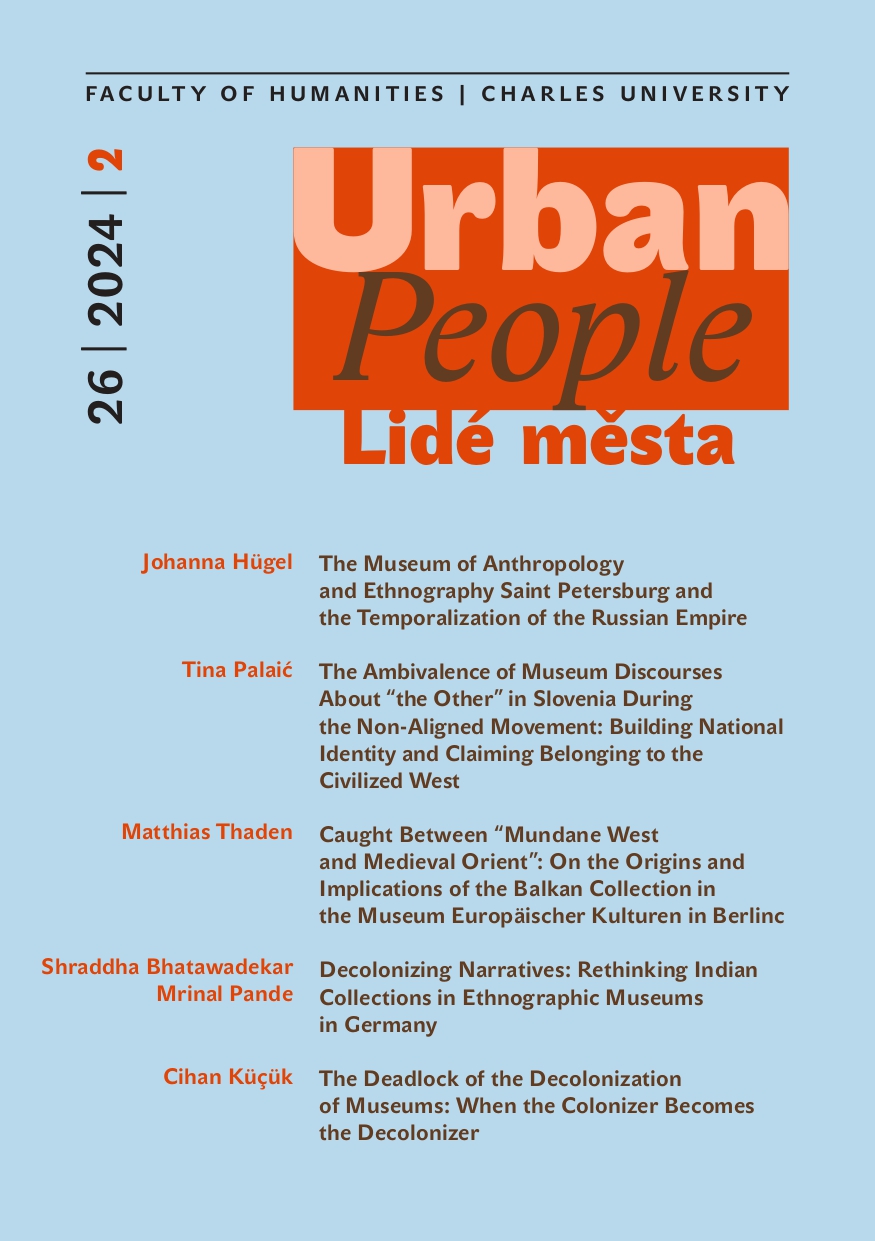Decolonizing Narratives
Rethinking Indian Collections In Ethnographic Museums In Germany
DOI:
https://doi.org/10.14712/12128112.4717Klíčová slova:
Indian collections, narratives, decolonization, Indology, post-ethnologyAbstrakt
In the last few decades, ethnographic museums in Europe have witnessed a change in curatorial and display practices. With critical attention to differentiation and Othering resulting from the interconnected experiences of imperialism and coloniality, the role and responsibility of museums is evolving, intended at decolonizing exhibitions and narratives. However, the impact of decolonial approaches in those museum exhibitions in Europe, where colonial contexts are indirect, i.e., not involving territorial occupation, remains underexplored. This paper aims to critically analyse one such less explored context, focusing on Indian collections in German museums. Taking the case of Indian collections in the erstwhile Prussian State holdings in Berlin (now housed in the Humboldt Forum), it traces the historical, institutional, and sociopolitical contexts in which they were acquired and continue to be displayed. This discussion is interlaced with interest in Indology–the study of Indian culture, history, and literature, which gained momentum in the 19th century. Engaging a theoretical-analytical lens, the paper examines how colonial knowledge systems shaped certain narratives and how they are reflected inthe current exhibition. Moreover, it explores the use of contemporary strategies, influenced by the ongoing decolonizing discourses and their impact on presenting the story of Indian collections in German museums today.
Stahování
Publikováno
Jak citovat
Číslo
Sekce
Licence
Copyright (c) 2024 Shraddha Bhatawadekar, Mrinal Pande

Tato práce je licencována pod Mezinárodní licencí Creative Commons Attribution 4.0 .


